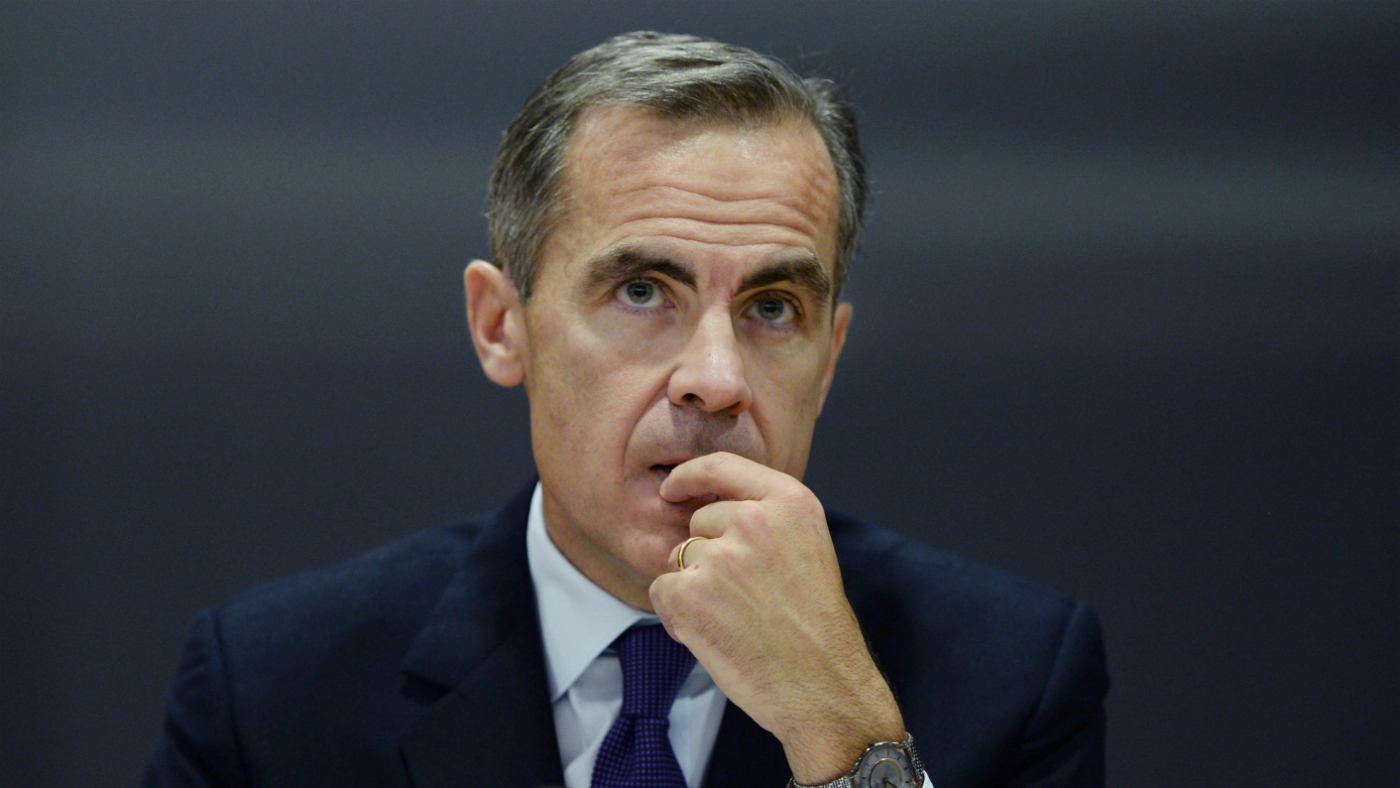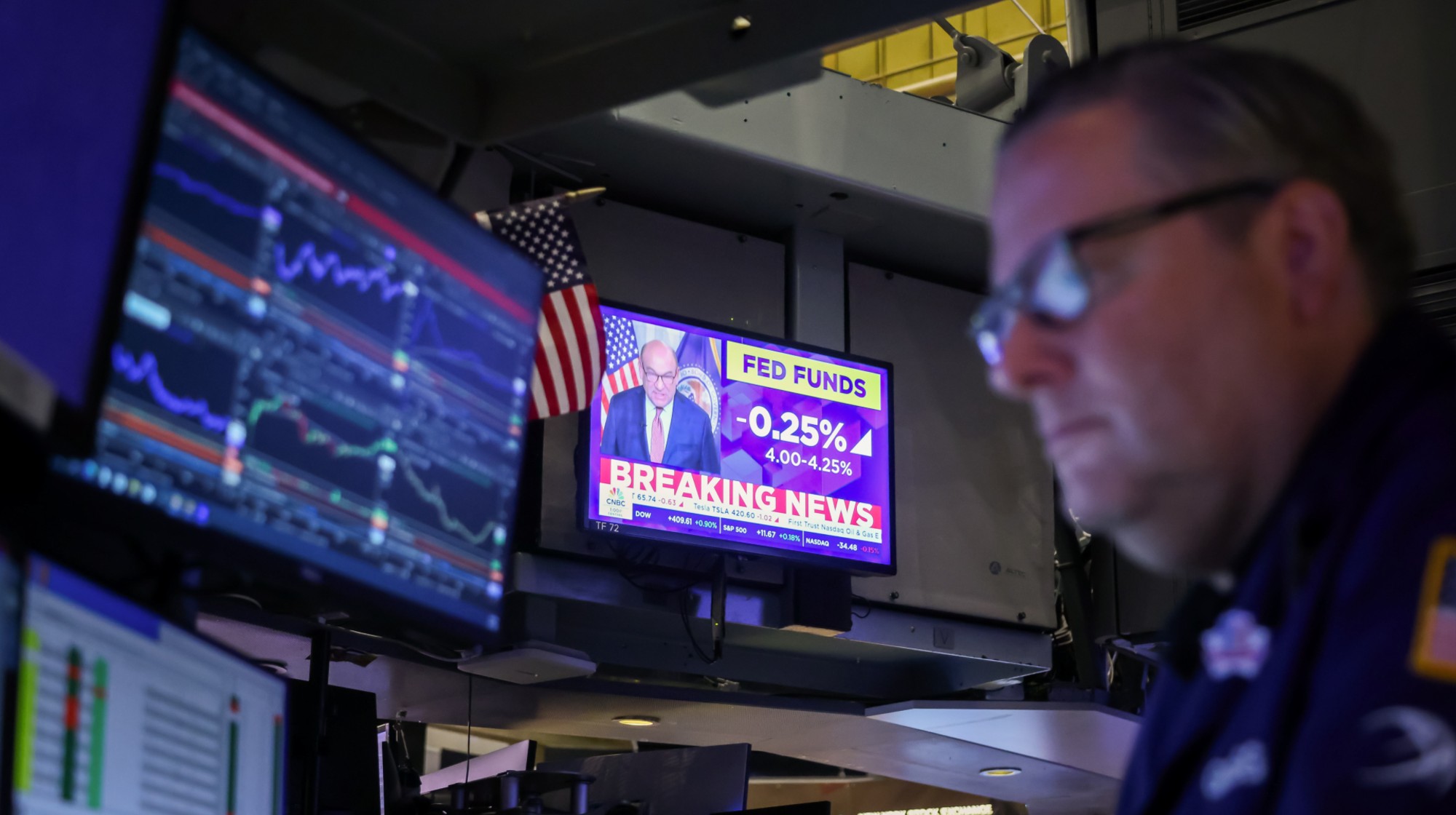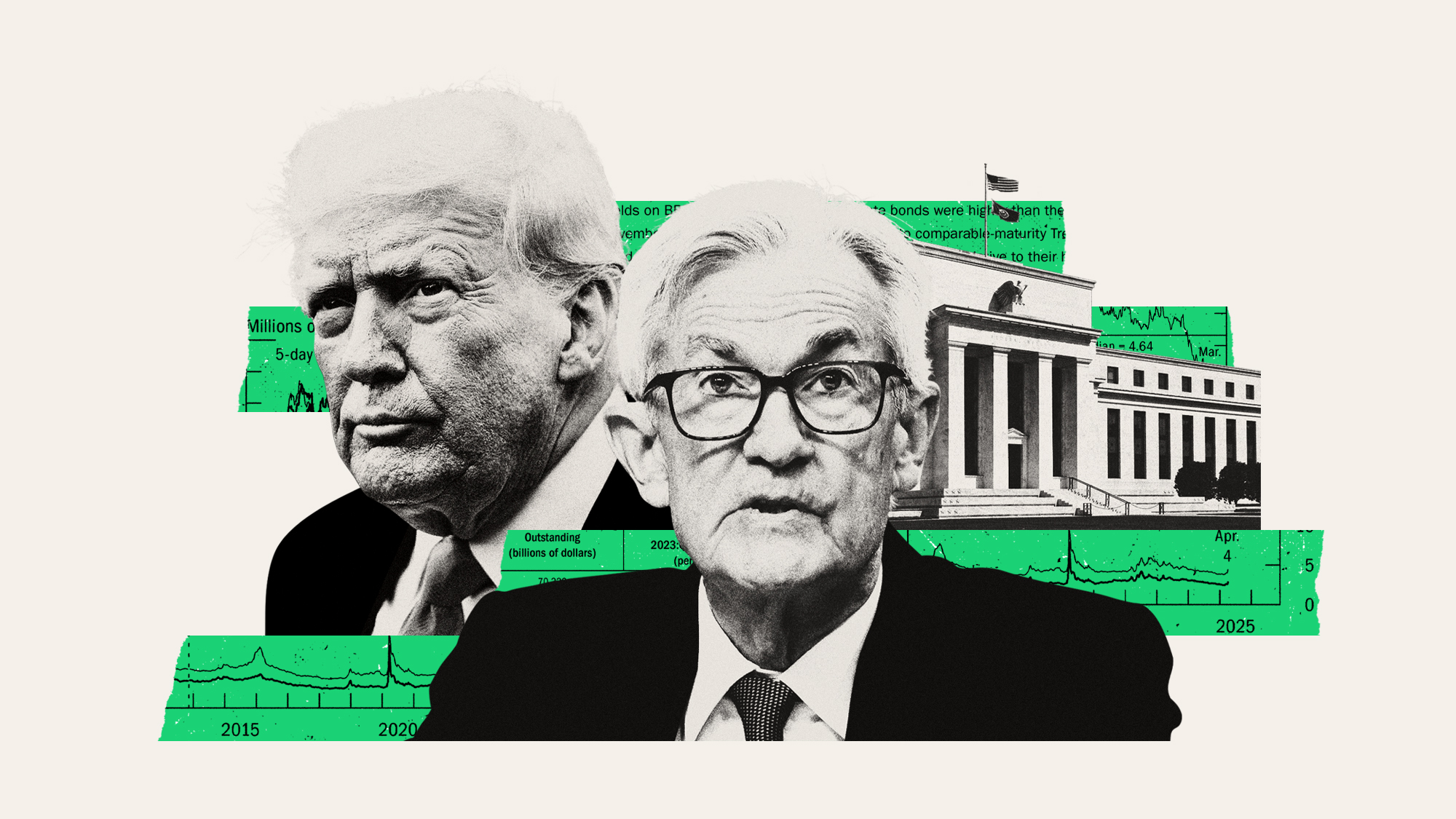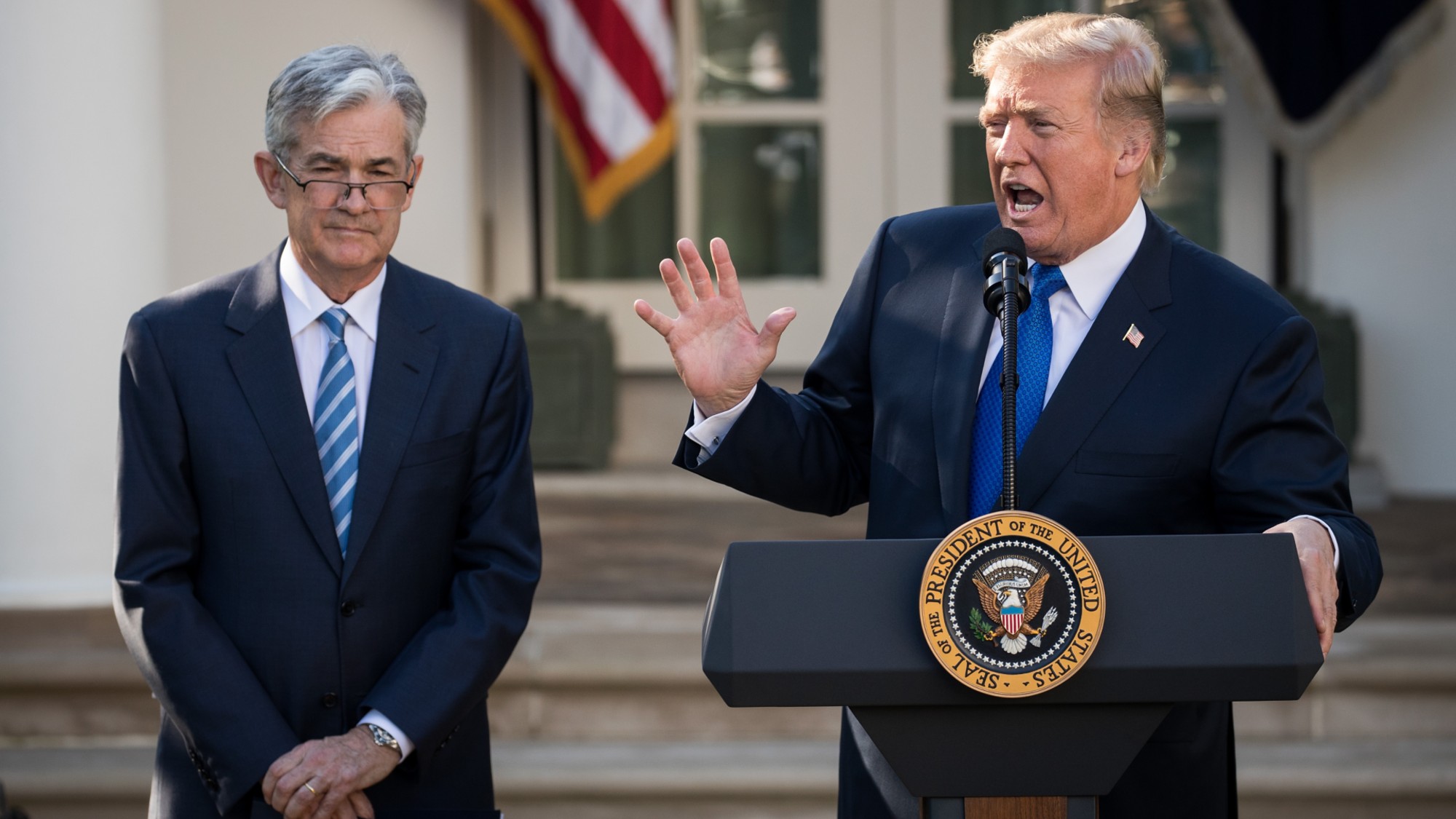Pound plunges after Bank of England's dovish rates signal
Central bank revises its growth forecast for UK economy

A free daily email with the biggest news stories of the day – and the best features from TheWeek.com
You are now subscribed
Your newsletter sign-up was successful
Fed raises interest rates - and predicts three more in 2017
15 December
The US Federal Reserve has raised its key interest rate by 0.25 per cent – only the second time it has gone up in eight years.
"Growth is a touch stronger, unemployment is a shade lower", Fed chairwoman Janet Yellen said, revealing the increase in the benchmark rate to 0.5-0.75 per cent, following a unanimous 10-0 vote.
The Week
Escape your echo chamber. Get the facts behind the news, plus analysis from multiple perspectives.

Sign up for The Week's Free Newsletters
From our morning news briefing to a weekly Good News Newsletter, get the best of The Week delivered directly to your inbox.
From our morning news briefing to a weekly Good News Newsletter, get the best of The Week delivered directly to your inbox.
She added: "We expect the economy will continue to perform well, with the job market strengthening further and inflation rising to two per cent over the next couple of years."
The move had been widely expected, with traders prior to the vote putting the chance of an increase at 97 per cent.
However, the bank "also predicted three further rates increase in 2017, up from previous expectations of two rate hikes", The Guardian says, catching financial markets off guard and sending the dollar to a 14-year high.
Commodities priced in dollars were sold off liberally following the announcement, with safe-haven gold falling around $20 an ounce to below $1,137.
A free daily email with the biggest news stories of the day – and the best features from TheWeek.com
According to the Fed, the US economic outlook is "slightly more optimistic than it projected in September", with growth "reaching 1.9 per cent this year… and 2.1 per cent in 2017", ABC News says.
Despite the upbeat forecast, Yellen said the election of Donald Trump had put a "cloud of uncertainty" over "how economic policies may change and what effect they may have on the economy".
Federal Reserve interest rates call: What to watch
14 December
The US Federal Reserve is widely expected to announce an increase to short-term interest rates when it concludes its latest policy meeting tonight.
"Oddly enough, the very fact that everyone generally expects them to do so is the best reason that they will do so," says Tim Worstall on Forbes.
Worstall argues the implied chances of a rise, based on market bets, is 97 per cent, because "all the expectation management from the Fed over the past few months has been that there will be a rate rise".
Should the Fed fail to go through with the first hike this year, "the only reason anyone can think of… is that there's some howlingly bad piece of information that the Fed currently has and the market as a whole does not".
That would prompt a sharp turnaround on markets, as happened when the Fed disappointed by holding rates in November last year.
Equities would be expected to fall sharply from currently elevated levels, taking the dollar with it. A key beneficiary would be gold, which is the market's obvious safe haven.
What if rates rise? Well, says Worstall, as the market is so prepared for the increase it is unlikely there would be much of an adjustment.
But, argues the Wall Street Journal, there is more to tonight's announcement than whether to increase short-term rates - traders will be poring over the Fed's move for clues as to the number of rises in 2017.
They'll look to the policy statement for language shifts that indicate rises will be less "gradual", as well as to the "dot plot" to see if policymakers now expect more than the two increases they forecast in November.
Less obviously, there will be scrutiny of the view on longer-term unemployment: if the expected rate by the end of next year does not fall, this could imply the economy has run out of slack, suggesting higher inflation next year.
Inflation surges tend to be held in check by interest rate increases, so this could also suggest an acceleration in policy tightening.
If the general consensus is that interest rates will increase faster than thought in the months ahead, you can expect the dollar to rise and gold to fall.
Fed interest rates rise next month is near certain, say investors
18 November
Investors appear to believe that a Federal Reserve interest rates rise next month is effectively a done deal after the latest public comments from its chair Janet Yellen.
"The pricing of federal fund futures contracts implies that there is a greater than 95 per cent chance of [the Fed's rate-setting Open Markets Committee] raising rates at its next meeting, on 13-14 December," says The Guardian.
Brokers at investment banks are almost as confident.
"As a result of the [Yellen] testimony, we raised our subjective probability of a hike next month to 90% (from 85% previously)," Goldman Sachs said, according to the BBC. "Other analysts give a similar likelihood."
During her evidence session to a congressional committee yesterday, Yellen said that the Fed could raise interest rates "relatively soon" – and that the US recovery was "making very good progress".
She cited strong economic data, namely the improving employment figures, as evidence of "strengthening growth" that should lead to "inflation moving up". Consumer price rises are currently around 1.2 per cent, compared to a two per cent target.
There were expectations that the Fed would stave off policy action in the event that Donald Trump won the presidency, but now that he has done so the reality has proved rather different.
The BBC says "indications that Mr Trump will cut taxes and spend heavily on infrastructure make it more likely that the Fed will want to raise rates to contain inflationary pressures".
Yellen added that decisions by the new administration would be "taken into account" in future rates decisions.
The Fed last increased rates in December last year, to a still-near-zero 0.25 to 0.5 per cent. At the time, it hinted at four rates rises this year, but global economic headwinds have persuaded the Fed to keep rates on hold for longer.
Bank of England ditches second interest rate cut
3 November
The economy's improved prospects have prompted a u-turn from the Bank of England's rate-setting Monetary Policy Committee, says the Daily Telegraph.
Having said in September that a second post-referendum cut in the base borrowing rate to close to zero would be likely this month if economic conditions did not improve, officials instead voted to hold rates at their record low of 0.25 per cent.
There was not one dissenting vote among the nine-member panel, revealing the widespread belief that conditions have indeed picked up. The bank's bond-buying programme was also put on hold.
A string of positive reports this week show steady growth in the dominant services sector, as well as in manufacturing and construction last month. The reports follow a better-than-expected overall GDP reading for the third quarter last week.
As a result, the Bank of England's own forecasts have been revised higher. It is now predicting growth totalling 2.2 per cent this year and 1.4 per cent next, up from two per cent and 0.8 per cent in August.
But the bank still believes there are problems further down the line. Growth prospects for 2018, when Brexit negotiations should be coming to a head, were revised down from 1.8 per cent to 1.5 per cent – and it warned of an economic hit persisting in "the medium term".
Real living standards are also likely to be severely squeezed by a surge in inflation next year linked to the tumbling pound, with the projection for consumer price rises increasing from two to 2.7 per cent.
Inflation is now expected to peak in early 2018 at more than 2.8 per cent.
This will give rate-setters a policy challenge. In theory there will be pressure to raise rates to counter the inflation jump, but this will come alongside weakening growth and make rate-setters wary of chocking economic activity.
Governor Mark Carney has previously said the bank would "look through" short-term inflation spikes when setting future policy. This could mean rates will stay low for a long time yet.
Interest rates: What to expect from Bank of England and the Fed
2 November
Tomorrow sees the announcement of the latest Bank of England monetary policy decision, the first update for two months under its revised timetable.
It's part of a major central bank double-header of decisions, with the US Federal Reserve to announce the outcome of its latest meeting and policy votes later tonight.
Both are expected to keep interest rates on hold this month and to keep the powder dry on other stimulus, but the outlooks for the near future are very different.
In September, the Bank of England's Monetary Policy Committee voted to hold rates at the record low of 0.25 per cent set the previous month, although it warned another cut closer to zero could follow this month.
However, that was before a raft of economic data revealed better-than-expected 0.5 per cent GDP growth in the third quarter and an expected return to manufacturing sector expansion in the fourth quarter.
ITV says these positive indicators have all-but "quashed" another cut this month. The bank will probably sound much more upbeat and up both of its most recent GDP and inflation forecasts.
The Belfast Telegraph says economists at IHS Markit and the National Institute for Economic and Social Research are now predicting no movement in rates until at least 2018 – and perhaps later.
As for the Fed, there is a general view that so close to the presidential election, its Open Markets Committee will not move to raise rates for the second time in a year.
That's especially true given the overnight poll boost for Donald Trump, whose victory would be viewed negatively and is expected to start a major market wobble.
But, says Fortune, investors are strongly pricing in a rates rise in December on the assumption of a Hillary Clinton victory. Consequently, all eyes will be on the meeting minutes for any clues as to the Fed's intentions.
Lewis Alexander, the chief US economist at Nomura, the global investment bank, warned there may be few for them to find, as a hike in December is so priced in that the central bank "won’t feel like it needs to lock in its intentions any more than necessary".
-
 The ‘ravenous’ demand for Cornish minerals
The ‘ravenous’ demand for Cornish mineralsUnder the Radar Growing need for critical minerals to power tech has intensified ‘appetite’ for lithium, which could be a ‘huge boon’ for local economy
-
 Why are election experts taking Trump’s midterm threats seriously?
Why are election experts taking Trump’s midterm threats seriously?IN THE SPOTLIGHT As the president muses about polling place deployments and a centralized electoral system aimed at one-party control, lawmakers are taking this administration at its word
-
 ‘Restaurateurs have become millionaires’
‘Restaurateurs have become millionaires’Instant Opinion Opinion, comment and editorials of the day
-
 Powell: The Fed’s last hope?
Powell: The Fed’s last hope?Feature Federal Reserve Chairman Jerome Powell fights back against President Trump's claims
-
 The end for central bank independence?
The end for central bank independence?The Explainer Trump’s war on the US Federal Reserve comes at a moment of global weakening in central bank authority
-
 Who will be the next Fed chair?
Who will be the next Fed chair?Today's Big Question Kevin Hassett appears to be Trump’s pick
-
 Should Labour break manifesto pledge and raise taxes?
Should Labour break manifesto pledge and raise taxes?Today's Big Question There are ‘powerful’ fiscal arguments for an income tax rise but it could mean ‘game over’ for the government
-
 What are stablecoins, and why is the government so interested in them?
What are stablecoins, and why is the government so interested in them?The Explainer With the government backing calls for the regulation of certain cryptocurrencies, are stablecoins the future?
-
 Fed cuts interest rates a quarter point
Fed cuts interest rates a quarter pointSpeed Read ‘The cut suggests a broader shift toward concern about cracks forming in the job market’
-
 Trump's threats to fire Jerome Powell are unsettling the markets
Trump's threats to fire Jerome Powell are unsettling the marketsTalking Points Expect a 'period of volatility' if he follows through
-
 How will Wall Street react to the Trump-Powell showdown?
How will Wall Street react to the Trump-Powell showdown?Today's Big Question 'Market turmoil' seems likely